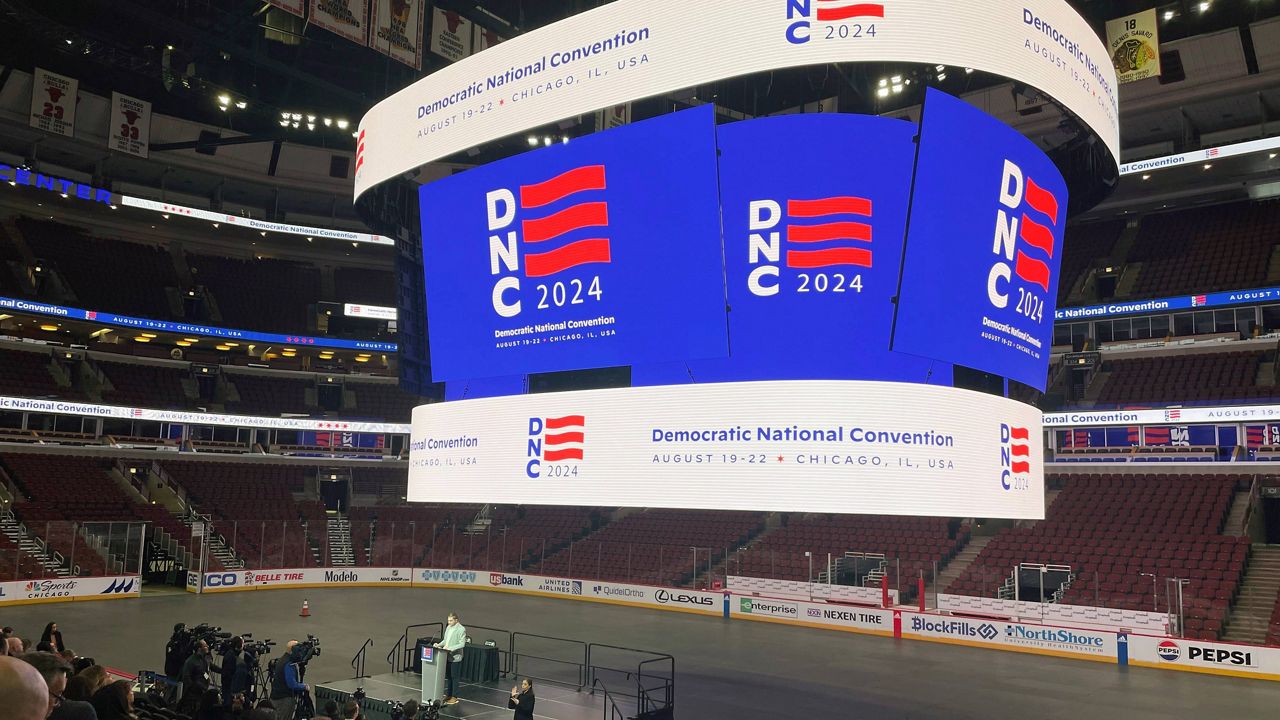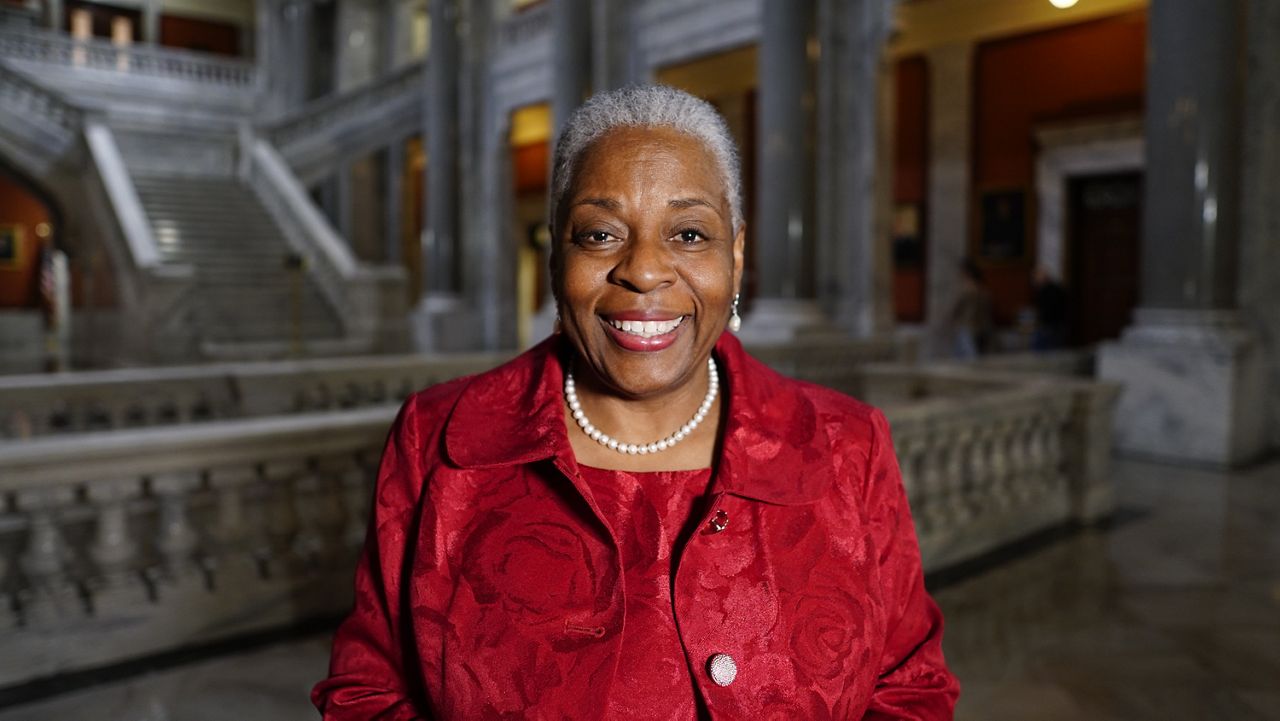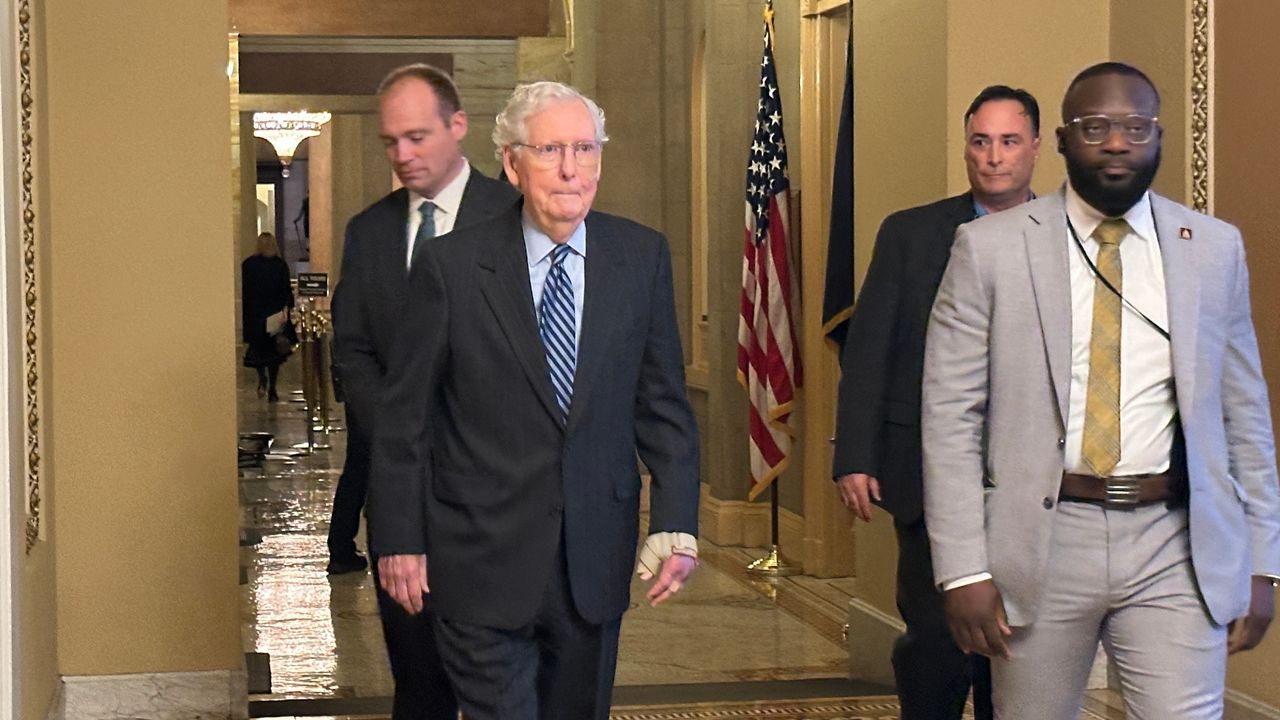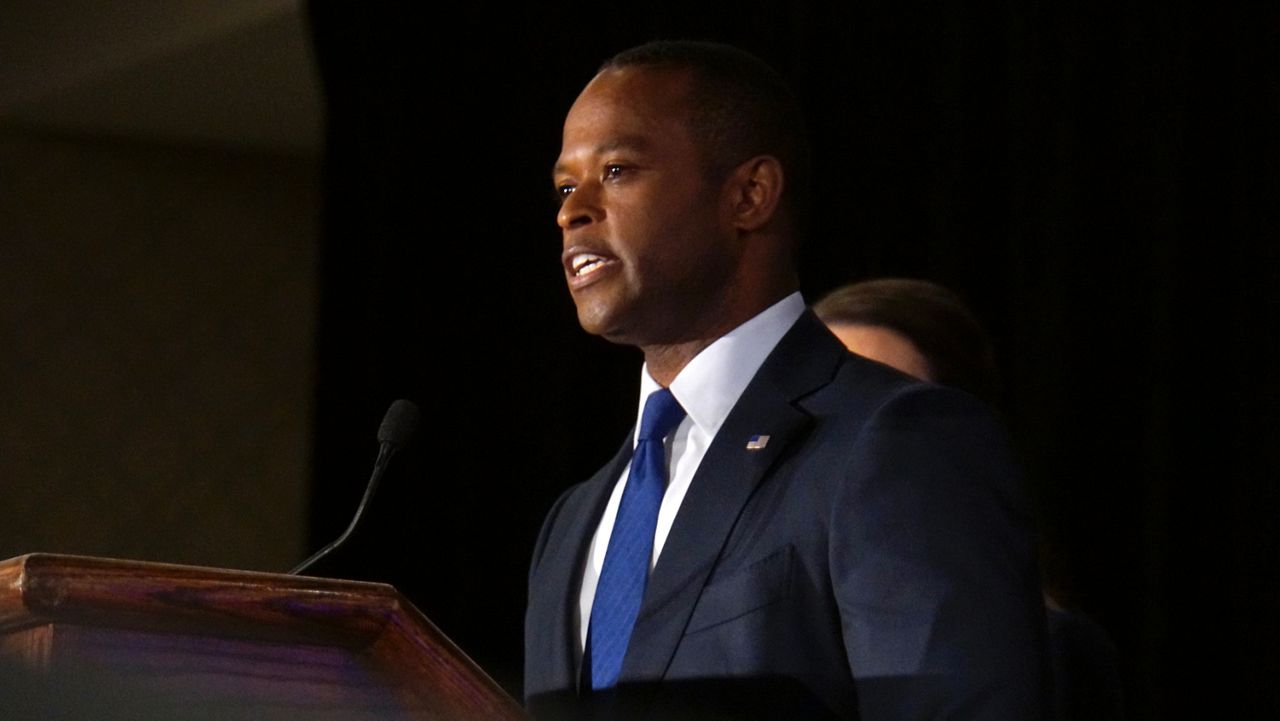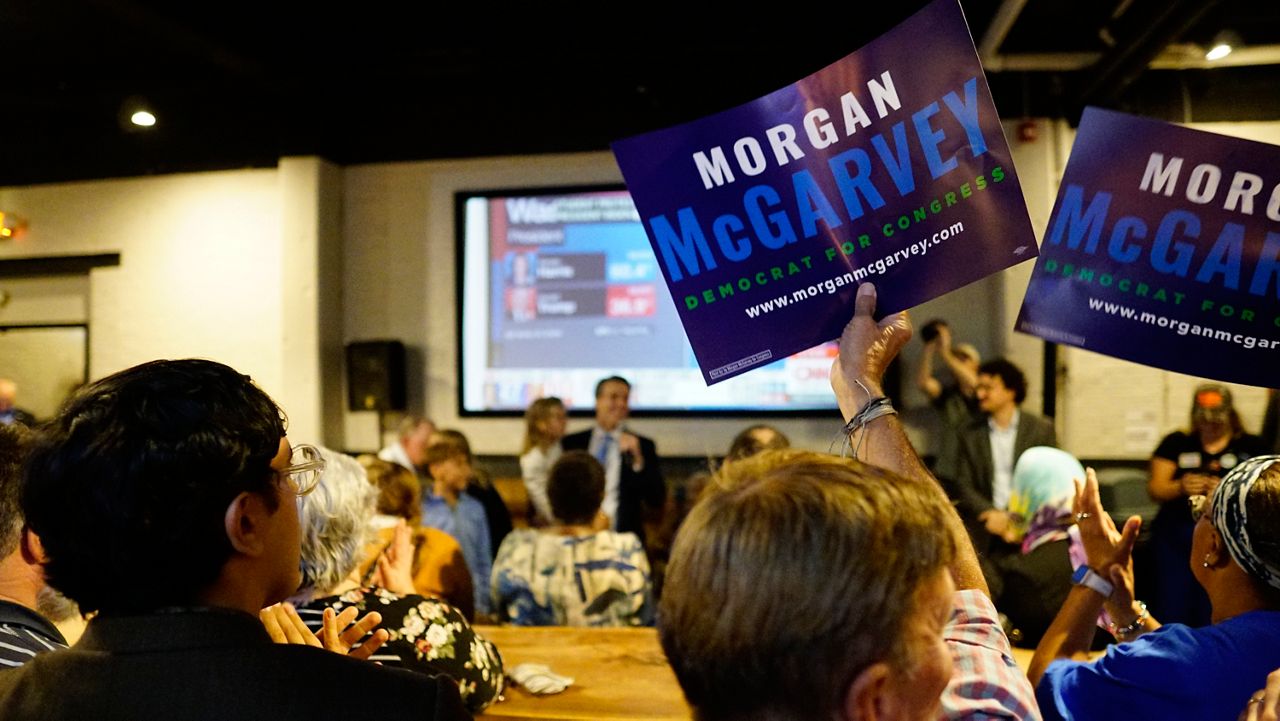LOUISVILLE, Ky. — As Democrats from all over the country gather in Chicago for the Democratic National Convention, Kentucky's 56 delegates will join them to participate in the formal nomination process of Kamala Harris as their presidential nominee and Tim Walz as the vice presidential nominee.
How does someone from Kentucky become a delegate to the Democratic National Convention? As one Kentucky delegate explained, there is an open process that begins at the local level.
"It's a very grassroots process," said Logan Gatti, chair of the Louisville Democratic Party and a delegate to this year's DNC. He says he's relatively new to local politics, though he's been active in the Democratic Party for about seven years.
Requirements to become a delegate
Anyone can be elected as a delegate, so long as they are a registered Democrat in the state, according to the bylaws of the Kentucky Democratic Party. "There aren't any other major stipulations beyond the fact that you're just registered to be a Democrat," Gatti said. "We try and keep it as open and as simple as possible."
First route to become a delegate: Be elected by a congressional district conventon
There are three routes to become a DNC delegate from Kentucky. The first one is to be elected by a congressional district convention. The most direct way to do this is to be nominated and elected at the local level — either at a legislative district convention or a county convention.
Someone can technically run to be a DNC delegate at the congressional district convention level without running at the legislative district or county convention level. For the most part, however, those running will start at the local level and work their way up.
Currently, Jefferson and Fayette counties are the only counties in the state that have legislative district conventions and then a county convention. The rest of the state's 118 counties have a county convention only.
At the legislative district convention, party members meet as a legislative district, which Gatti says "mimic" their legislative district for the Kentucky House of Representatives. Each legislative district nominates and elects delegates to move on to the congressional district convention; the number of congressional district delegates they can elect is based on the number of registered Democrats in the district.
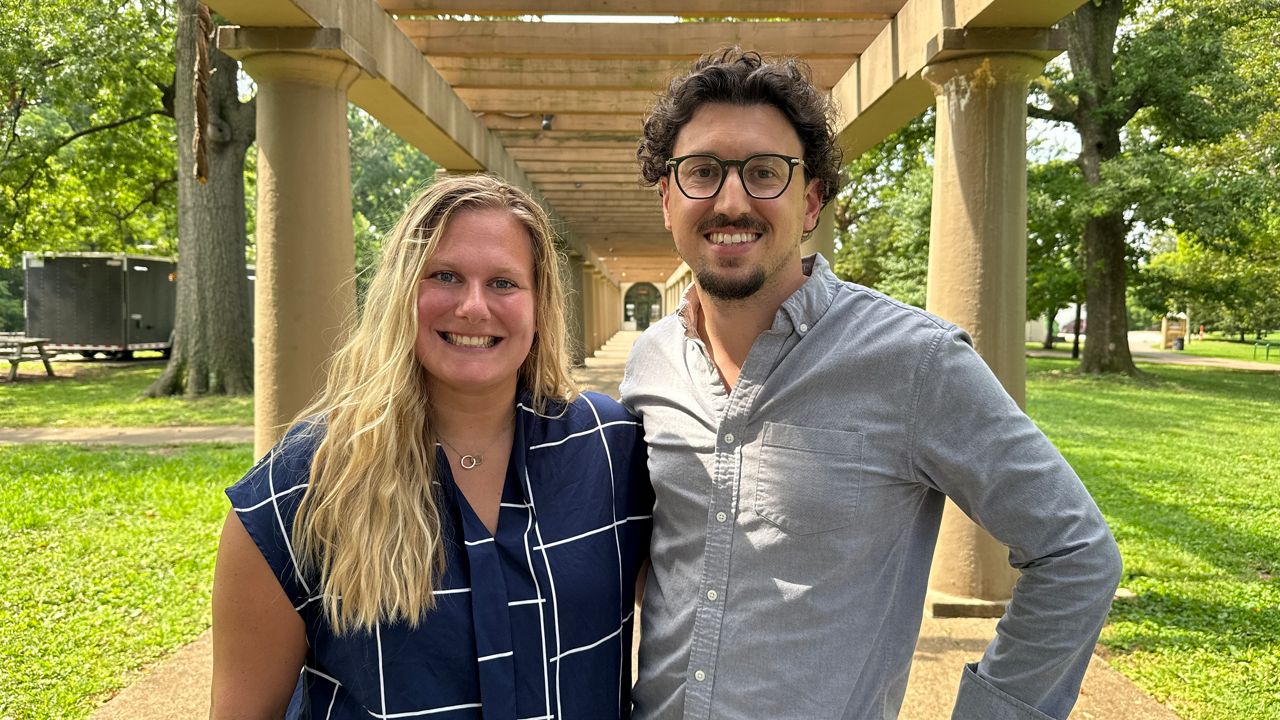
"For example, I'm in District 42," Gatti said. "It's a very Democratic district, so we get to send a very large number of folks to the state convention."
According to KDP bylaws, any county with six or fewer legislative districts has a convention instead of a legislative district convention to select its delegates for the congressional district convention. This is how the rest of Kentucky's 118 counties send delegates to the congressional district convention. But it is a similar process: Party members meet for the county convention to nominate and elect delegates to the congressional district convention. The number they can send is based on the number of registered Democrats in the district who voted in the most recent elections.
Next, Democrats will meet for the congressional district convention and state convention to select who will ultimately be their delegates to the DNC. The two conventions happen on the same day; this year's meeting was on June 15 at the Kentucky Exposition Center in Louisville. Party members will break out into groups based on their respective U.S. congressional districts to elect their delegates.
Gatti's district is the Third Congressional District, which encompasses most of Jefferson County.
"We all got together in a room once again. Everyone who was nominated to run for a national seat representing the Third Congressional District, and they got up and said a couple of words to make their case," he said.
Then, everyone votes.
The number of delegates each congressional district can send is also proportional, based on the number of registered Democratic voters in the district who voted in the most recent elections. Gatti's district, which is heavily Democratic, is sending nine delegates, four men and five women to represent them.
"The ones that have lower Democratic turnout, they sent three or four, I think was the lowest number we had," he said.
All delegates elected this way must be registered in the congressional district they are representing.
Second route to become a delegate: Be elected by the state convention
The second way to become a DNC delegate is to be elected at the state convention that follows the congressional district conventions. These are voted on by the entire state convention, but you must be a party leader or elected official to be elected this way.
Third route to become a delegate: Be selected as an at-large delegate
The last route to become a DNC delegate for Kentucky is to be selected by the State Central Executive Committee, the governing body of the KDP, which has a certain number of at-large delegate spots it can fill.
That's how Kentucky Democrats get their full delegation to the DNC, which stands at 56 delegates and two alternate delegates who will be in Chicago for the convention.
What else do you do and who pays for it?
As far as how they actually get there and what they do when they get there, Gatti said that's largely up to the delegates themselves. Besides voting for the nominees and the platform, the responsibilities of a delegate "really depend on what your ability to contribute is," he said.
"If you want to get more involved, there are a number of committees that you can be engaged in. You can do a little bit more. For example, I'm a delegate captain, which means I'm responsible for a group of roughly 20 or so Kentucky delegates, just making sure they know how to submit their votes," Gatti said.
The logistics and costs of lodging, meals and transportation are entirely on the individual delegates, which Gatti estimates can be upward of $2,000 for the four days of the convention. Many will pool their resources by traveling together and splitting rooms, and some will raise money or be sponsored to cover their costs. For example, he is splitting a room with two other delegates. "We're going to make sure everyone that was selected to be a delegate gets there," Gatti said.
The costs are worth it for Gatti, who is excited to connect with other Democrats around the country and to be a part of what he says is a historic moment. "Vice President Harris is the first Black woman to be nominated by one of the two major political parties to be president of the United States, which is a major milestone in our country,” he said.
The DNC runs from Aug. 19-24 at the United Center in Chicago.





